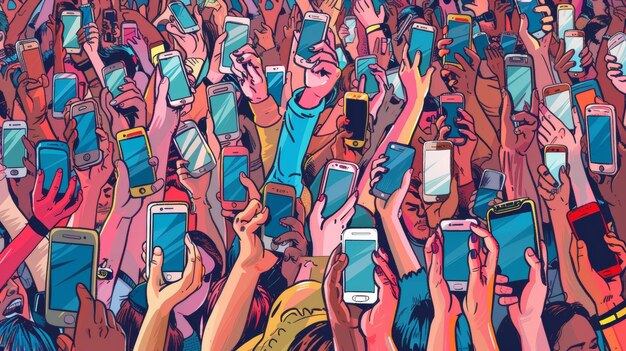The Psychology of Online Shaming: Why We Watch Others Fail

The psychology of online shaming explores the complex reasons why individuals engage in or enjoy witnessing public humiliation on the internet, often driven by factors like social comparison, moral signaling, and the amplification of group dynamics.
The internet has revolutionized communication, but it has also given rise to a darker phenomenon: online shaming. Why do we find ourselves drawn to watching others stumble, and what psychological forces are at play? The Psychology of Online Shaming: Why Do We Enjoy Watching Others Fail? is a multifaceted issue rooted in human behavior.
Understanding the Appeal of Online Shaming
Online shaming, a form of public humiliation amplified by the internet, has become a pervasive aspect of our digital lives. The question of why we find ourselves drawn to it is complex, involving a mix of psychological, social, and even evolutionary factors. Understanding these underlying drivers can help us contextualize our own behaviors and reactions to online shaming incidents.
Social Comparison Theory
One of the core reasons for the appeal of online shaming lies in the social comparison theory. This theory suggests that humans have an innate drive to evaluate themselves by comparing themselves to others. When we see someone publicly shamed, it can create a sense of relative superiority. This feeling, although fleeting, can be psychologically rewarding.
Schadenfreude
A more direct explanation involves the concept of schadenfreude, a German term for taking pleasure in the misfortune of others. While it might seem callous, schadenfreude is a surprisingly common human emotion. It can arise when we perceive someone as having an inflated ego, behaving unjustly, or belonging to a group we dislike. Online shaming provides an easily accessible stage for this emotion to play out.

Ultimately, understanding why we are drawn to online shaming involves acknowledging the complex interplay of social comparison, schadenfreude, and the unique dynamics of the internet. By examining these factors, we can better understand our own motivations and work towards fostering a more compassionate online environment.
The Role of Anonymity and Deindividuation
The internet’s cloak of anonymity and the phenomenon of deindividuation play significant roles in exacerbating online shaming. These factors can lead individuals to behave in ways they might not in face-to-face interactions, often contributing to the intensity and frequency of online shaming incidents.
Anonymity’s Influence
Anonymity, or the perception of it, reduces accountability. When individuals believe their actions are untraceable, they are more likely to engage in behaviors they would otherwise avoid. This can manifest as more aggressive or judgmental comments, contributing to the pile-on effect often seen in online shaming.
Deindividuation in Online Crowds
Deindividuation occurs when individuals lose their sense of personal identity within a group. In the context of online shaming, this can happen when people feel swept up in the collective outrage of a virtual mob. The shared intensity of the group can diminish individual responsibility, leading to more extreme and socially unacceptable behaviors.
- Reduced Accountability: Anonymity allows individuals to evade responsibility for their actions.
- Group Dynamics: Deindividuation fosters a sense of shared identity and collective behavior.
- Amplified Behavior: Both anonymity and deindividuation can amplify aggressive tendencies online.
In summary, anonymity and deindividuation are powerful forces that contribute to the prevalence and severity of online shaming. By understanding these dynamics, we can better address the problem and promote more responsible online behavior.
Moral Outrage and the Performance of Virtue
Online shaming isn’t always driven by malicious intent. Sometimes, it stems from a sense of moral outrage, a belief that someone has violated social norms or ethical principles. However, this moral outrage can also be intertwined with the desire to signal one’s own virtue and align with perceived social values.
Expressing Moral Disapproval
When an individual perceives a clear violation of morality, they may feel compelled to express their disapproval publicly. This can take the form of critical comments, sharing the offending content with others, or even participating in the creation of shaming campaigns.
Virtue Signaling
Virtue signaling involves publicly expressing opinions or taking actions primarily to demonstrate one’s own moral correctness or social standing. In the context of online shaming, it can manifest as individuals condemning the actions of others in a way that emphasizes their own superior values.

Therefore, moral outrage, combined with the human tendency to perform virtue, plays an important role in fueling online shaming. Recognizing these motivations can help us engage in more thoughtful and constructive dialogues about ethical issues online.
The Echo Chamber Effect and Confirmation Bias
The architecture of social media platforms and online communities often reinforces existing beliefs through the echo chamber effect and confirmation bias. These phenomena contribute to the intensity of online shaming by creating environments where dissenting opinions are silenced and outrage is amplified.
Creating Echo Chambers
Echo chambers emerge when individuals are primarily exposed to information and opinions that confirm their existing beliefs. Social media algorithms often contribute to this by prioritizing content that aligns with a user’s past behavior. In the context of online shaming, this can lead to groups of individuals mutually reinforcing their outrage and condemnation.
Reinforcing Confirmation Bias
Confirmation bias is the tendency to seek out and interpret information in a way that confirms pre-existing beliefs. When individuals are already inclined to disapprove of someone’s actions, confirmation bias can lead them to selectively focus on information that supports their negative assessment, further fueling the shaming.
- Limited Perspectives: Echo chambers restrict exposure to diverse viewpoints.
- Selective Information: Confirmation bias encourages the acceptance of supportive information and rejection of contradictory evidence.
- Amplified Outrage: Both echo chambers and confirmation bias can amplify feelings of outrage and condemnation.
In conclusion, the echo chamber effect and confirmation bias play a key role in intensifying online shaming. These forces distort perceptions, limit exposure to diverse viewpoints, and amplify outrage, contributing to the cycle of public humiliation.
The Impact of Online Shaming on Victims
The impact of online shaming on victims can be profound and long-lasting. Beyond immediate emotional distress, it can lead to social isolation, mental health issues, and even long-term reputational damage. Understanding the potential consequences is essential for fostering a more compassionate online environment.
Emotional Distress and Mental Health
Online shaming can trigger a range of negative emotions, including shame, humiliation, anxiety, and depression. The public nature of the shaming can exacerbate these feelings, leading to significant psychological distress. In severe cases, victims may experience suicidal ideation.
Social Isolation and Stigma
Victims of online shaming often face social isolation as friends, family, and colleagues distance themselves to avoid being associated with the controversy. The stigma attached to being publicly shamed can make it difficult to form new relationships or maintain existing ones.
Ultimately, online shaming can have devastating consequences for victims, affecting their mental health, social relationships, and long-term reputation. By recognizing these potential harms, we can be more mindful of our online behavior and work towards creating a more supportive environment.
Combating Online Shaming: Strategies for a Healthier Internet
Combating online shaming requires a multifaceted approach that involves individual responsibility, platform accountability, and societal awareness. By adopting proactive strategies, we can foster a healthier internet that prioritizes empathy, respect, and constructive dialogue.
Promoting Empathy and Critical Thinking
Encouraging empathy and critical thinking skills can help individuals pause before participating in online shaming. By considering the potential impact of their words and actions, people can make more responsible choices.
Platform Accountability
Social media platforms play a key role in shaping online culture. They need to implement policies that effectively address online shaming, including clear community guidelines, reporting mechanisms, and content moderation practices.
- Education and Awareness: Promote media literacy and awareness campaigns about the consequences of online shaming.
- Bystander Intervention: Encourage bystanders to intervene when they witness online shaming.
- Support for Victims: Provide resources and support for victims of online shaming.
In conclusion, effectively combating online shaming requires a combination of individual responsibility, platform accountability, and societal awareness. By promoting empathy, implementing effective policies, and providing support for victims, we can work towards creating a more compassionate and constructive online environment.
| Key Point | Brief Description |
|---|---|
| 🤔 Psychology | Explores the social comparison and schadenfreude related to online shaming. |
| 🎭 Anonymity | Discusses how anonymity reduces accountability, amplifying online negativity. |
| 📣 Moral Outrage | Details how moral outrage and virtue signaling contribute to shaming. |
| 🛡️ Combating | Covers strategies for fostering healthier, empathetic online environments. |
Frequently Asked Questions
▼
People engage in online shaming for various reasons, including seeking social validation, expressing moral outrage, or experiencing schadenfreude. Anonymity and group dynamics can also play a significant role in facilitating this behavior.
▼
Victims of online shaming often experience emotional distress, anxiety, depression, and social isolation. The public nature of the humiliation can lead to feelings of shame and reputational damage, potentially impacting their mental health.
▼
Anonymity reduces accountability, making people more likely to engage in aggressive or judgmental behaviors they would avoid in person. This can lead to harsher comments and a greater willingness to participate in shaming campaigns.
▼
Yes, online shaming often falls under the umbrella of cyberbullying. It involves using digital platforms to harass, humiliate, or intimidate an individual, causing emotional and psychological harm. The scale and visibility of online shaming can amplify its impact.
▼
Strategies to reduce online shaming include promoting empathy and critical thinking, holding platforms accountable for content moderation, encouraging bystander intervention, and providing support for victims. Education and awareness campaigns can also play a key role.
Conclusion
In conclusion, the psychology of online shaming is a complex issue rooted in various factors such as social comparison, anonymity, moral outrage, and echo chambers. Understanding these underlying mechanisms is crucial for fostering a healthier online environment that prioritizes empathy, respect, and constructive dialogue over public humiliation.






